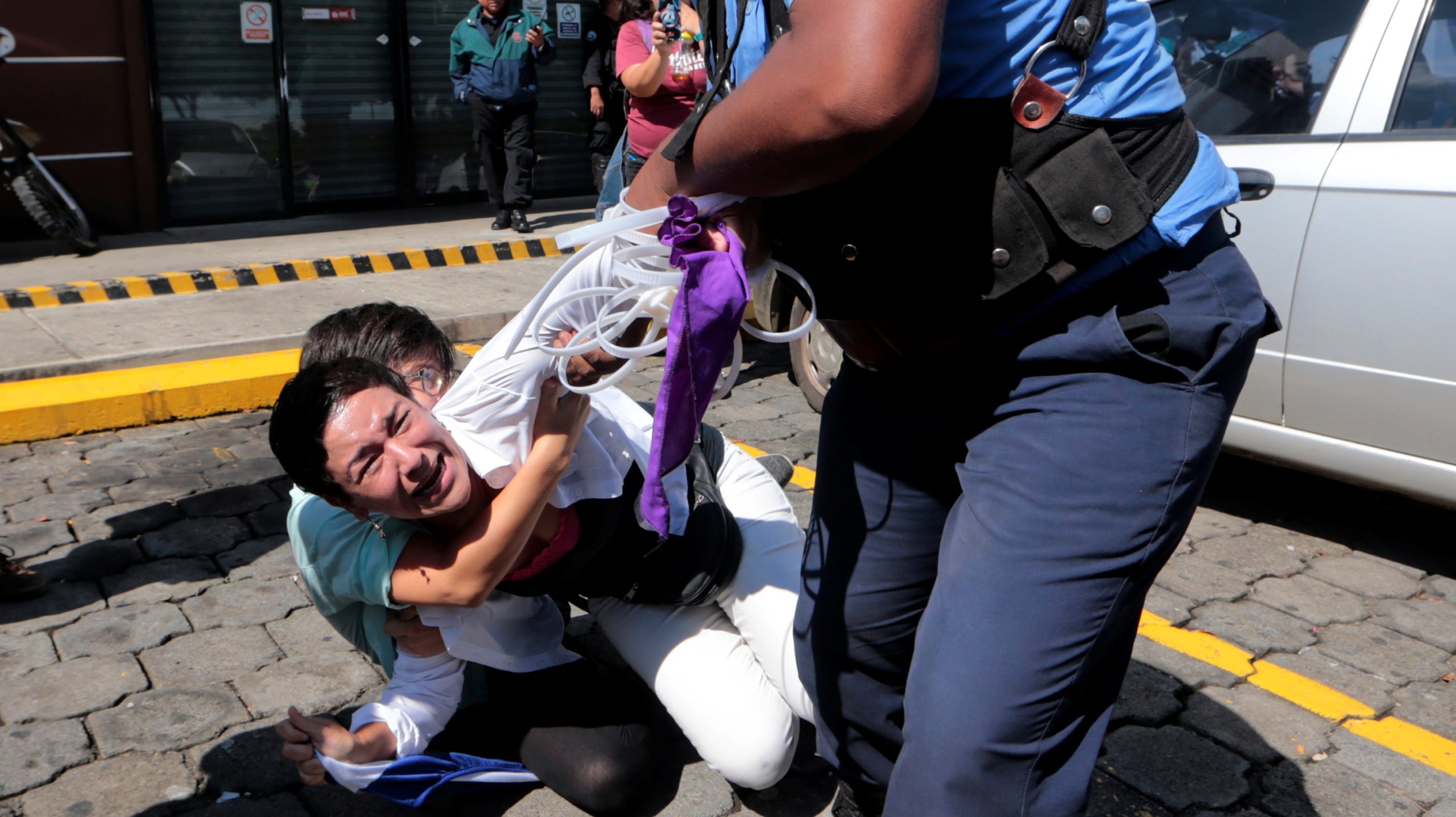
The enforced disappearance of people is the latest tactic that authorities in Nicaragua have adopted to silence any criticism or dissenting voices, Amnesty International said in a new report released today. Where are they? Enforced Disappearance as a Strategy of Repression in Nicaragua documents the cases of 10 people detained for their activism or for exercising their right to freedom of expression who have been subjected to enforced disappearance, despite being in the custody of the Nicaraguan authorities.
“Daniel Ortega’s government of is implementing a new strategy to try to silence those who speak out. By disappearing opponents, activists and journalists, Ortega is showing his fear of criticism and complaints,” said Erika Guevara-Rosas, Americas director at Amnesty International.
“The 10 cases we have documented demonstrate a new pattern of detentions followed by enforced disappearances and bear strong similarities to the cases of dozens of others who may be in the same situation. We demand that Daniel Ortega’s government immediately release all those detained for exercising their rights.”
Since the beginning of the human rights crisis in Nicaragua in April 2018, there has been no end to reports of harassment against people identified as opponents of the government, human rights defenders, journalists, victims of human rights violations and their families.
Daniel Ortega’s government of is implementing a new strategy to try to silence those who speak out
Erika Guevara-Rosas, Americas director at Amnesty International
The new phase of the repressive strategy of President Ortega’s government, which is highlighted by the detention of a new group of people identified as opponents of the government, began on 28 May 2021. From then until 2 August, more than 30 people were deprived of their liberty, adding to the more than 100 people who were already in prison just for exercising their human rights.
After analysing the cases of 10 individuals, Amnesty International concluded that – in light of the Nicaraguan state’s international human rights obligations – their detention, followed by the concealment of their whereabouts, constitutes the crime of enforced disappearance. The cases documented were those of Daysi Tamara Dávila, Miguel Mendoza, José Pallais, Suyen Barahona, Víctor Hugo Tinoco, Félix Maradiaga, Ana Margarita Vijil, Violeta Granera, Jorge Hugo Torres and Dora María Téllez.
The 10 documented cases are not isolated cases and occur in a context where there are repeated reports of other situations that have important similarities. Therefore, the cases analysed likely represent just a small sample of a longer list of victims.
In all of the documented cases, as of 2 August (the closing date of the investigation), the authorities had not officially disclosed the exact location of the detainees – a requirement under international law. In most cases, the only information received about their possible location has been provided verbally by police officers at the gate of the Judicial Assistance Directorate Evaristo Vasquez Police Complex (Dirección de Auxilio Judicial Complejo Policial Evaristo Vásquez, DAJ), known as the “New Chipote” (Nuevo Chipote), after family members insisted. However, mere statements by police officers in charge of the entrance of a detention centre are not sufficient, official and credible proof of the whereabouts and conditions of the detainees.
We demand that Daniel Ortega’s government immediately release all those detained for exercising their rights
Erika Guevara-Rosas, Americas director at Amnesty International
Both the Public Prosecutor’s Office and the National Police have issued public statements acknowledging the detentions. However, in none of them do they mention the place of detention. Furthermore, the families have not been able to visit the detainees, their legal teams have not had access to interview them, and the judicial authorities have not responded to calls to authorise the entry of family members and lawyers.
The information available to Amnesty International shows that the families and legal representatives of the 10 detainees submitted more than 40 applications, petitions and appeals to different authorities, requesting access to their files, medical examinations for the detainees, interviews with their lawyers, family visits, and immediate release, among other requests. Unfortunately, these appeals have been ineffective and, in most cases, left unanswered by the authorities.
Enforced disappearance is a crime under international law and one of the most serious human rights violations because it implies the violation of multiple human rights. It is defined as a lawful or unlawful deprivation of a person’s liberty by state agents, or by other actors with the acquiescence or tolerance of the state, without subsequently acknowledging that the detention took place, or, if acknowledged, withholding information about the fate or whereabouts of the person deprived of liberty.
“This week will mark 90 days since the most recent detentions began, but the authorities continue to refuse to provide official information on the whereabouts and conditions of detention,” said Erika Guevara-Rosas. “The families deserve to know for sure if their loved ones are alive and where they are being held. The anguish they’re experiencing is yet another form of punishment under the repressive policies of Daniel Ortega’s government.”
For more information or to arrange an interview, contact Duncan Tucker: [email protected]

0 Comments